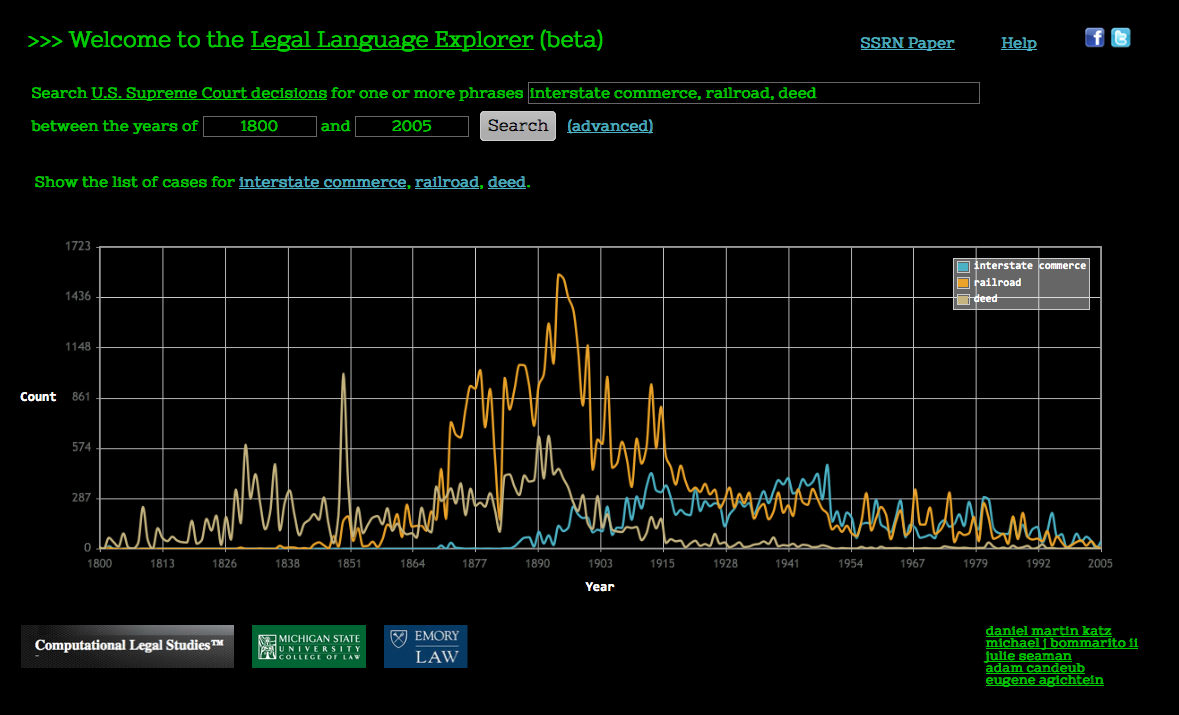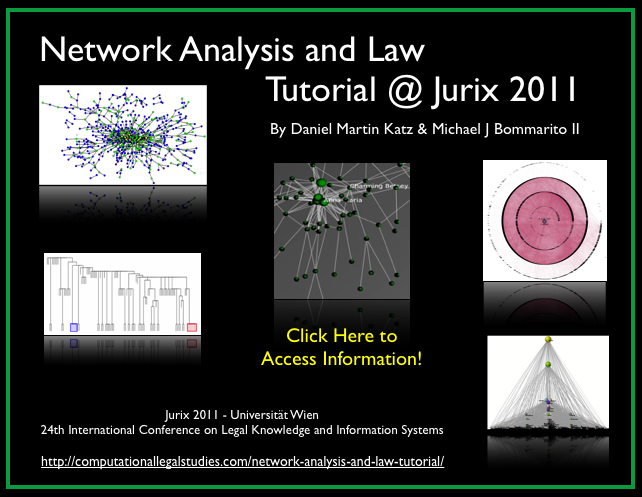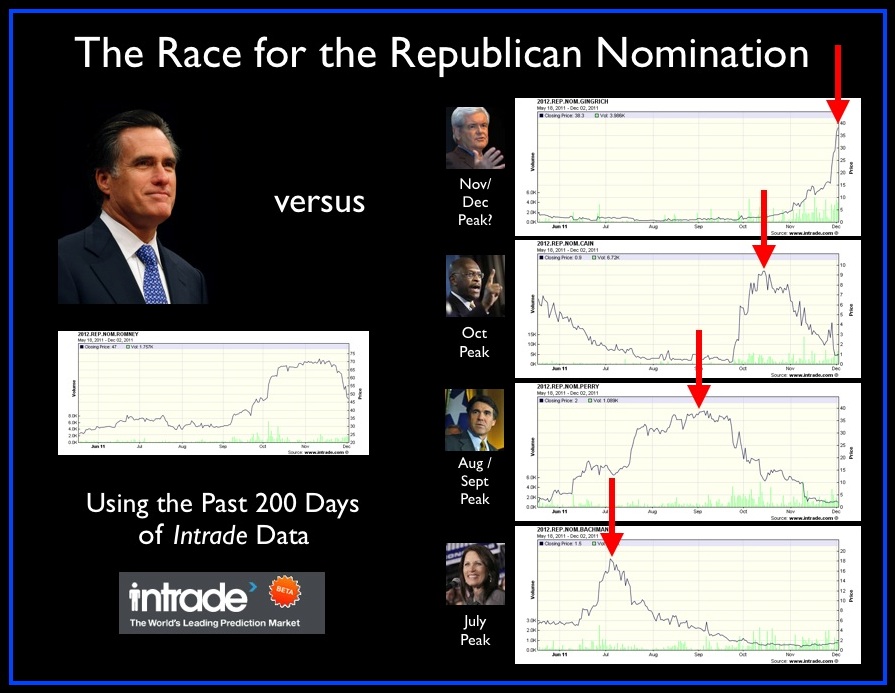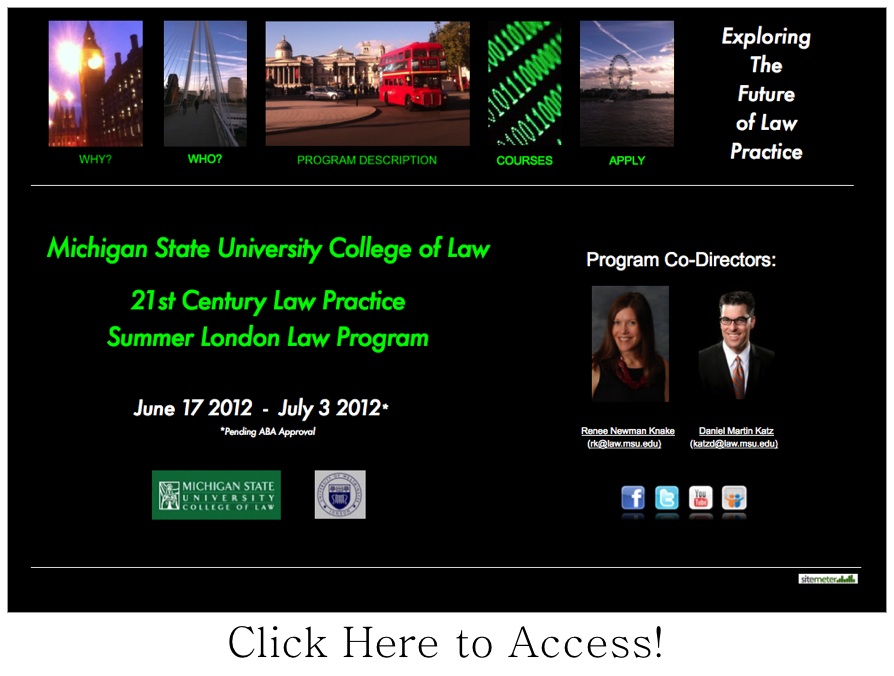Year: 2011
Benoît B. Mandelbrot: Fractals in Science, Engineering and Finance (Roughness and Beauty) [via MIT World]
Many of you are aware of my obsession (here) (here) (here) with fractals, power law distributions, etc. and their role in understanding a variety of phenomena. In this spirit, I recently came across this video on MIT World from the late Benoît B. Mandelbrot. It is well worth the watch – enjoy!
Larry Ribstein R.I.P.
 This is a sad day for the American Legal Academy. It has been reported (here) (here) (here) that Larry Ribstein has unexpectedly passed away.
This is a sad day for the American Legal Academy. It has been reported (here) (here) (here) that Larry Ribstein has unexpectedly passed away.
While I have only known Larry for about a year, we probably exchanged ~100 emails and provided comments on our respective papers. He had been helping me with my “MIT School of Law” paper as well as some of my other projects. I had recently provided commentary on his Wisconsin Law Review article on the Future of General Counsels. This is a very important paper.
Larry was one of the few people who really understood what was happening in our industry. While we did not agree on all subjects (particularly some of his views of corporate law and economic theory) his work on the future of legal education was straight up visionary. Taken together, I believe it will be seen as the template – the sketch of the future of our industry. Larry – I will miss you very much.
Announcing the Beta Pre-Release of Legal Language Explorer.com < Search the History of ANY Phrase in the Decisions of the United States Supreme Court >
In partnership with Michigan State University College of Law and Emory Law, today we announce the Beta Pre-Release of a New Web Interface – LegalLanguageExplorer.com. We are just getting started here with this project and anticipate many features that will be rolling out to you in the near future. Please feel free to send us your feedback / comments.
BASIC FEATURES:
Instant Return of a Time Series Plot for One or More Comma Separated Phrases. The default search is currently interstate commerce, railroad, deed (with plots for each of the term displayed simultaneously).
Feel free to test out ANY phrase of Up to Four Words in length.
Here are just a few of our favorites:
Clear and Present Danger
Habeas Corpus
Custodial Interrogation
Due Process
Unconstitutional
Property
Privacy
SCOPE OF COVERAGE:
In the current version, we are offering results for EVERY decision of the United States Supreme Court (1791-2005). We plan to soon expand to other corpora including the U.S. Court of Appeals, etc.
FULL TEXT CASE ACCESS:
Each of the Phrases you search will be highlighted in Blue. If you click on these highlighted phrases you will be taken to the full list of United States Supreme Court decisions that employ this phrase:
ADVANCED FEATURES:
Check out the advanced features including normalization and alternative graphing tools.
PAPER:
Daniel Martin Katz, Michael J. Bommarito II, Julie Seaman, Adam Candeub & Eugene Agichtein, Legal N-Grams? A Simple Approach to Track the ‘Evolution’ of Legal Language in Proceedings of Jurix: The 24th International Conference on Legal Knowledge and Information Systems (Vienna 2011) available at http://papers.ssrn.com/sol3/papers.cfm?abstract_id=1971953
PRESENTATION & HELPFUL TUTORIAL:
Click on the Image Below and You Will Be Directed to our Presentation at 24th International Conference on Legal Knowledge and Information Systems ( Jurix 2011 – Vienna )
This offers some motivation for the project as well as a Brief Slide Based Tutorial Designed to Highlight Various Functions Available on the Site.
TECHNICAL IMPLEMENTATION:
Michael J. Bommarito, Building Legal Language Explorer: Interactivity and Drill-Down, noSQL and SQL available at http://www.michaelbommarito.com/blog/2011/12/16/building-legal-language-explorer-interactivity-and-drill-down-nosql-and-sql/
Network Analysis and Law Tutorial @ Jurix 2011 – Universität Wien
I am going to bump this post back to the top as a reminder – we look forward to seeing you at the Jurix 2011 Network Analysis and Law Tutorial …
“Prior to the 2011 Jurix Conference on Legal Knowledge and Information Systems, Professor Daniel Martin Katz (Michigan State University, College of Law) and Michael Bommarito (University of Michigan – Center for the Study of Complex Systems) will present a tutorial on Network Analysis and Law.
“While historically allied with fields such as mathematical sociology, developments in network science have been generated by a wide range of disciplines, with major recent contributions offered by fields such as applied mathematics and statistical physics. Applied graph theorists often refer to networks as dependency graphs because they formalize the underlying linkages between objects. Whether the objects in question are webpages on the internet, individuals in a social network such as Facebook or software dependencies in computer programming, the study of networks is the ‘science of our times.’
Building upon the developments in this interdisciplinary field, legal scholars and social scientists have recently begun to apply the tools of network science to bring new insight to a variety of long standing questions including the social structure of legal elites and the ‘evolution’ of the common law. This introductory tutorial is designed to help acquaint intellectually curious scholars with developments in this rapidly emerging field.”
Please join us in Vienna, Austria – December 13, 2011 @ Universität Wien for the Network Analysis and Law Tutorial as we help kick off Jurix 2011 Week.“
Model Thinking – A Free Online Course with Scott E. Page (Director of UMich Center for Study of Complex Systems)
Starting in the January 2012, Scott E. Page (one of my PhD thesis advisors) will teach Model Thinking (a free online course offered via the consortium that brought you AI Class, Machine Learning, etc.)
Scott and I have previously teamed up to teach Complex Systems @ the ICPSR Summer Methods Program (where I teach the model implementation lab). Over 7,000 people and counting have are already signed up …
Announcing the 21st Century Law Practice London Summer Program – MSU College of Law – (In Partnership with University of Westminster)
Program Description: “The MSU / Westminster 21st Century Law Practice London Summer Program is a first of its kind, intensive study of technology, innovation, regulation, entrepreneurship and the international legal marketplace. With the deregulation of lawyers in the United Kingdom and the outgrowth of alternative legal services delivery models, London is poised to become the global leader in the legal services market. Our program will educate students about these new delivery models and help prepare students for the technology infused law jobs of the 21st Century.”
(1) Provide students a comprehensive understanding of the market for legal services as it transitions to a global legal supply chain in the wake of deregulation, economic pressures, and technological innovation.
(2) Prepare students to become practice-ready entrepreneurial lawyers who can leverage information technology in order to operate more efficiently and thereby attract (and retain) clients.
(3) Inspire students to think broadly about future delivery of legal representation and access to justice by exposing them to the innovative legal service delivery models and platforms of the present (and not-too-distant future).
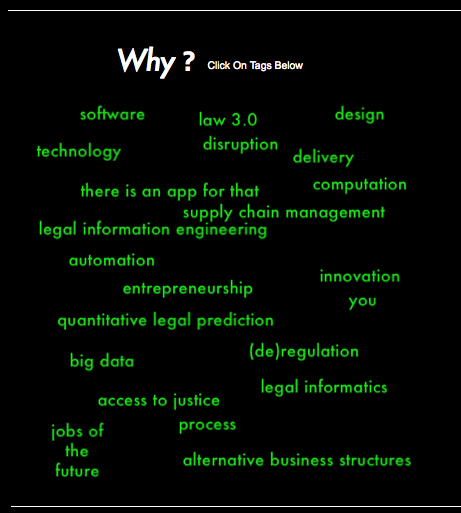 Courses for the 2012 Program:
Courses for the 2012 Program:
Legal Information Engineering & Technology – The increasing role of legal information technology in the law practice of today (and the not too distant future) will be highlighted in this course. Students will be exposed to a number of emerging approaches in legal automation, process engineering, informatics / ‘soft’ artificial intelligence (e-discovery, automated document generation), supply chain management, and quantitative legal prediction.
21st Century Law Practice – This course will provide students with an overview of the practice challenges facing lawyers in the 21st century, including economic pressures, technological advancements, increased globalization, international deregulation, and access to justice concerns (for example, reading the work of Richard Susskind, Thomas Morgan, and others). Building upon this background, the course will then explore a set of case studies to examine a variety of innovative new legal services delivery mechanisms and businesses in the US and the UK, such as Axiom, LawVest, Lawyers2You, LegalZoom, QualitySolicitors, Rocket Lawyer and others that have been created in anticipation of (or in some cases in response to) these practice challenges. Students will critically assess these legal service providers, and will reflect upon how lawyers and regulators should respond.
The Legal Services Act and UK Deregulation – Students will study the history and impact of the Legal Services Act and deregulation of the profession in the UK with a focus on how the resulting innovations (both regulatory changes and new legal services delivery mechanisms that follow) might be exported to the United States. Also encompassed in this course will be a comparative overview of American and British law governing lawyers and law practice, along with emphasis on globalization pressures faced by the legal profession.
APPLICATION GOES LIVE IN LATE DECEMBER – SPACE WILL BE LIMITED 🙂

